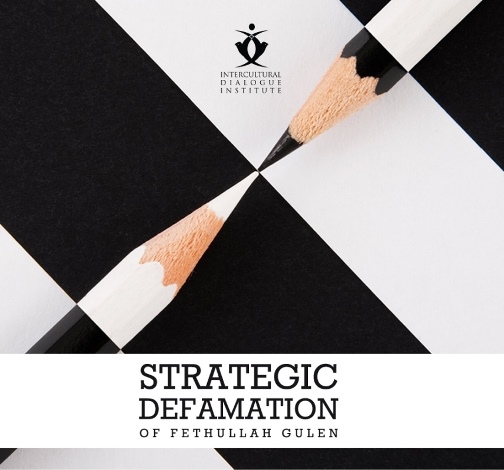
On March 10th, 2014 IDI GTA held an evening dinner and talk on the Strategic Defamation of Fethullah Gulen with Dr. Dogan Koc, the executive director of the Gulen Institute.
His presentation began with a brief biography of who Fethullah Gulen was, stating that Gulen was a state preacher who studied both Islamic and Western thought. Koc emphasized that one of the main reasons why the Gulen movement is so popular in the first place is because Gulen supported both the conservative and modern, as he saw that there was nothing wrong with being both.
Invalid Displayed Gallery
The second part of his talk then focused on what the Gulen movement was, and the 3 major problems it aimed to tackle, those being: lack of education, conflict or disunity and finally, poverty. Koc also made it a point to note that many of these problems actually affect each other. For example, education was seen as an essential field of service, and by creating non religious private institutions to teach secular education such as math, science and English, the Gulen movement was able to have Muslims and Christians learning together, thus creating unity. At the same time, education itself also helped in dealing with poverty and conflict since more people were aware of what was happening around them.
Koc then started to speak about the highlight of the evening – the defamation of Gulen. He stressed that critic defamation was not referring to people who criticized the ideas of Gulen or movement itself, but instead defamation was when critics put forward false claims in order to impeach and damage Gulen’s character. He also mentioned that there were 2 major views of Gulen – the Turkish and the American. In Turkey, ultra secularists and radical Islamists viewed Gulen as an American puppet, a Zionist, and a Vatican agent. While in America, Gulen was seen as Islam’s trojan’s horse, an American Khomeini, and someone who was trying to resurrect the new Ottoman Empire and universal caliphate. All of which were false and ridiculous statements clearly meant to defame Gulen.
Finally, Koc ended his talk by bringing up the Erdogan-Gulen conflict and asked the question – Did Gulen support the Erdogan government? To this, he answered yes and no. Essentially, Gulen did support the Erdogan government in the beginning since he supported democratization and the end of military tutelage. However, by Erdogan’s third term, due to Erdogan’s authoritarian rule, Gulen ended up rejecting the notion of absolute obedience and his authoritarian government in general.
After Dr. Dogan finished his informative presentation, the night ended with a short question and answer session from the audience where questions of where to draw the line between freedom of speech and defamation was mentioned, along with the other goals of the Gulen movement.

Dogan Koc is the executive director of the Gulen Institute at the University of Houston. Before his work at the institute, Dr. Koc worked at the Cairo University as a visiting scholar, and taught at the Austin College in Sherman, TX. He received his PhD degree in Political Science from the University of Texas at Dallas. Dr. Koc also holds degrees in chemistry, education, and sociology. In his studies, he focuses on conflict resolution, international relations, and social movements. He conducted one of the first and most extensive quantitative researches on Turkey’s Kurdish conflict, in which he analyzes the strategies of military, government and civil society applied in the resolution of the conflict. He is also the author of the recent book “Strategic Defamation of Fethullah Gulen: Turkish vs. English.”
Fethullah Gülen is a moderate Turkish Muslim scholar who is known mostly for his education and dialogue activities. The Hizmet Movement, inspired by Gülen, has established hundreds of education and dialogue institutions throughout the world. Several books and hundreds of articles and news reports have been written about Gülen himself and the movement. In recent years, a defamation campaign has been launched against Gülen and the Hizmet Movement. Although these defamation articles may seem random, this book shows that the articles are written strategically in a campaign manner. In Strategic Defamation of Fethullah Gülen, close to 500 defamation articles, books, and other forms of writings are analyzed according to their languages. Koç concludes that these defamations differ from each other and appear according to their respective audiences.
For more on Gulen, read recent Foreign Affairs article by Victor Geaten: http://www.foreignaffairs.com/articles/140941/victor-gaetan/the-muslim-martin-luther



